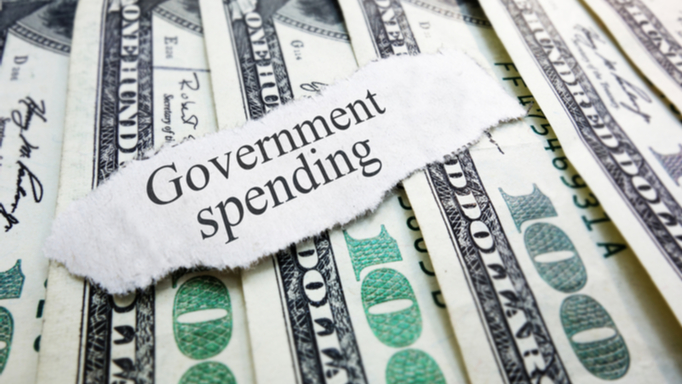When the government shovels out massive amounts of money with no protection against fraud, it attracts thieves and scammers like vultures to fresh roadkill.
During the pandemic, the federal government provided over $4.5 trillion in Covid relief aid through direct payments to households, loans to small businesses, and other benefits. During the early days of the pandemic, federal officials made a conscious decision to prioritize speed in sending out cash but failed to install controls to prevent fraud.
Now, we are gathering a clearer picture of the scope of fraud in pandemic relief programs.
Previously, we wrote about various cases of fraud in the Paycheck Protection Program (PPP). Gucci shopping trips, Rolls Royces, and Rolex watches were bankrolled with PPP loans during the first year of the program.
Nearly three years after the start of the pandemic, it’s been revealed that many fraudsters got rich on the taxpayer dime. Federal watchdogs indicated that fraud totaled over $60 billion and perhaps much higher.
We have leadership in Congress now to investigate this mismanagement of government funds, recoup lost funds, and pressure agencies to prevent this from happening in the future.
Covid fraud stacks up
Recently, the Government Accountability Office announced that as much as $45 billion was spent on fraudulent claims for unemployment insurance (UI) during the COVID pandemic.
Between April 2020 and September 2022, the federal government spent $878 billion on UI programs to help Americans cope with staggering job losses during the pandemic.
According to the report, state workforce agencies have confirmed $4.3 billion in fraudulent UI payments, and there are ongoing investigations into another $45 billion in potentially fraudulent payments.
A separate committee analyzed fraud in small business programs. The Pandemic Response Accountability Committee (PRAC) released a fraud alert detailing widespread fraud of the Paycheck Protection Program (PPP) and Economic Injury Disaster Loans (EIDL). Based upon an analysis of 33 million applications, some 221,427 applications were found to have used fraudulent social security numbers and of those, 69,323 applications were issued EIDL and PPP loans totaling over $5.4 billion in funds.
So across these programs perhaps as much as $50 billion has been fraudulently accessed. These may be undercounts of just how widespread the fraud in these programs was.
Not included in these numbers are other programs that were expanded during the pandemic such as Medicaid and food stamps. Undoubtedly, these programs were targeted by scammers as well.
While $50-$60 billion is a small percentage of the overall $4.5 trillion in payments, it is nothing to dismiss.
Covid-relief fraud gets its day on Capitol Hill
Last week, the House Oversight and Accountability Committee hosted its first hearing under the new Republican-led House of Representatives entitled “Federal Pandemic Spending: A Prescription for Waste, Fraud, and Abuse.”
Chairman James Comer of Kentucky noted in opening comments why this hearing is critical:
And what happens if there is no oversight? Nothing good.
We have seen reports that between $163 to $400 billion in unemployment insurance benefits were paid out improperly.
We have seen reports that between $76 to more than $100 billion in Paycheck Protection Program and Economic Injury and Disaster Loans were lost to improper payments.
We have seen reports that $266 billion in improper payments were made by Medicaid during the pandemic.
…
We owe it to the American people to get to the bottom of the greatest theft of American taxpayer dollars in history.
We must identify where this money went, how much ended up in the hands of fraudsters or ineligible participants, and what should be done to ensure it never happens again.
Republican senators Rand Paul and Joni Ernst also announced that they are launching a large-scale investigation into fraud in the $5.4 trillion Covid relief programs.
The senators have asked the Small Business Administration to investigate the true extent of fraud in the PPP and EIDL programs and to work with the Justice Department to hold the fraudsters accountable.
Bottom Line
Early into the pandemic, IWF was vocal that any relief aid must be temporary, targeted, and flexible.
By targeting aid to those who need help rather than to everyone, the government could have reduced the possibility of fueling high demand for goods at a time when producers could not meet that demand, triggering inflation.
By making it temporary, aid should not become a disincentive to work. Unfortunately, multiple rounds and stimulates checks, generous UI payments, and other pandemic benefits that were distributed well after the economy started to reopen and workers were needed became disincentives to work, and contributed to inflation.
Flexibility in programs could have meant that agencies could alter programs to meet the changing realities on the ground. That also included reforming programs to ramp up controls against fraud.
Unfortunately, by not being temporary, targeted, and flexible early on we must now play clean-up. Congress and appropriate agencies have a duty to find and hold accountable the fraudsters that took advantage of the pandemic for their own gains. Hopefully, they have also learned a valuable lesson for the future.

